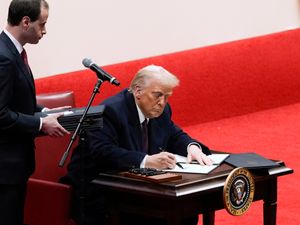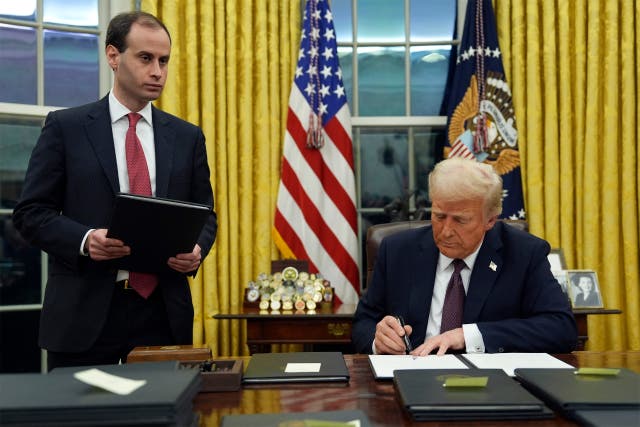Judge temporarily blocks Trump’s executive order ending birthright citizenship
The case has been brought by the states of Washington, Arizona, Illinois and Oregon.

A federal judge on Thursday temporarily blocked President Donald Trump’s executive order redefining birthright citizenship, calling it “blatantly unconstitutional” during the first hearing in a multi-state effort challenging the order.
US District Judge John C Coughenour ruled in the case brought by the states of Washington, Arizona, Illinois and Oregon, which argue the 14th Amendment and Supreme Court case law have cemented birthright citizenship.
The temporary restraining order sought by the states was the first to get a hearing before a judge and applies nationally.
The case is one of five lawsuits being brought by 22 states and a number of immigrants’ rights groups across the country.
The suits include personal testimonies from attorneys general who are US citizens by birthright, and names pregnant women who are afraid their children will not become US citizens.

Judge Coughenour, a Ronald Reagan appointee, began the hearing by grilling the administration’s lawyers, saying the order “boggles the mind”.
“This is a blatantly unconstitutional order,” he said.
Judge Coughenour said he has been on the bench for more than four decades, and he could not remember seeing another case where the action challenged was so clearly unconstitutional.
Justice Department lawyer Brett Shumate said he respectfully disagreed and asked the judge for an opportunity to have a full briefing on the merits of the case, rather than have a 14-day restraining order issued blocking its implementation.
Arguing for the states, Washington assistant attorney general Lane Polozola labelled as “absurd” the government’s argument that the children of parents living in the country illegally are not “subject to the jurisdiction” of the United States.
“Are they not subject to the decisions of the immigration courts?” he asked. “Must they not follow the law while they are here?”
He also said the restraining order was warranted because, among other reasons, the executive order would immediately start requiring the states to spend millions to revamp health care and benefits systems to consider an applicant’s citizenship status.
“The executive order will impact hundreds of thousands of citizens nationwide who will lose their citizenship under this new rule,” Mr Polozola said. “Births cannot be paused while the court considers this case.”
Signed by Mr Trump on Inauguration Day, the order was slated to take effect on February 19. It could affect hundreds of thousands of people born in the country, according to one of the lawsuits.
In 2022, there were about 255,000 births of citizen children to mothers living in the country illegally and about 153,000 births to two such parents, according to the four-state suit filed in Seattle.
The US is among about 30 countries where birthright citizenship — the principle of jus soli or “right of the soil” — is applied. Most are in the Americas, and Canada and Mexico are among them.
The lawsuits argue that the 14th Amendment to the US Constitution guarantees citizenship for people born and naturalised in the US, and states have been interpreting the amendment that way for a century.
Ratified in 1868 in the aftermath of the Civil War, the amendment says: “All persons born or naturalised in the United States and subject to the jurisdiction thereof, are citizens of the United States and of the State wherein they reside.”
Mr Trump’s order asserts that the children of noncitizens are not subject to the jurisdiction of the United States, and orders federal agencies to not recognise citizenship for children who don’t have at least one parent who is a citizen.
The US Department of Justice later said in a statement that it will “vigorously defend” the president’s executive order, which it said “correctly interprets the 14th Amendment of the US Constitution”.
“We look forward to presenting a full merits argument to the court and to the American people, who are desperate to see our nation’s laws enforced,” the department said.





